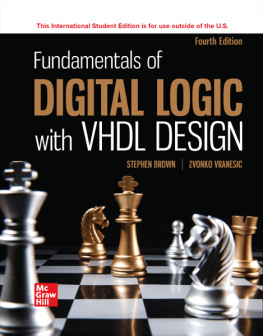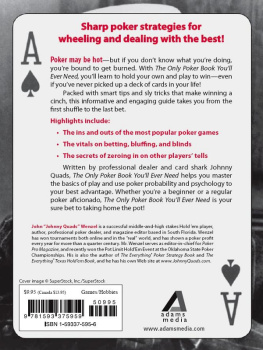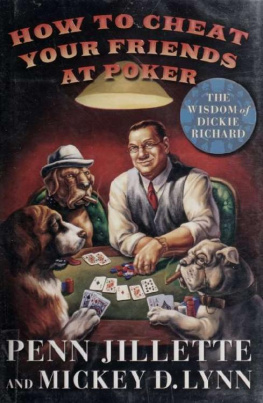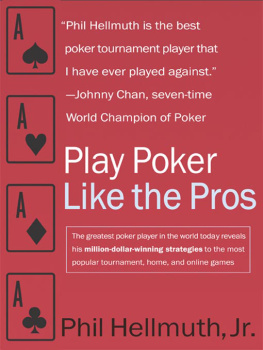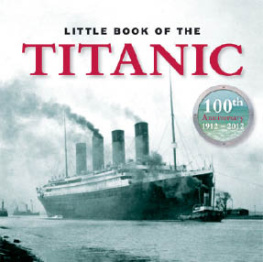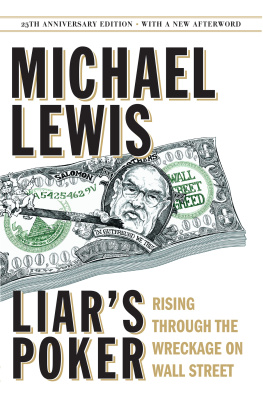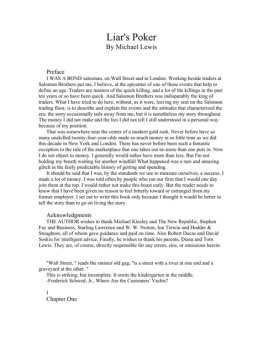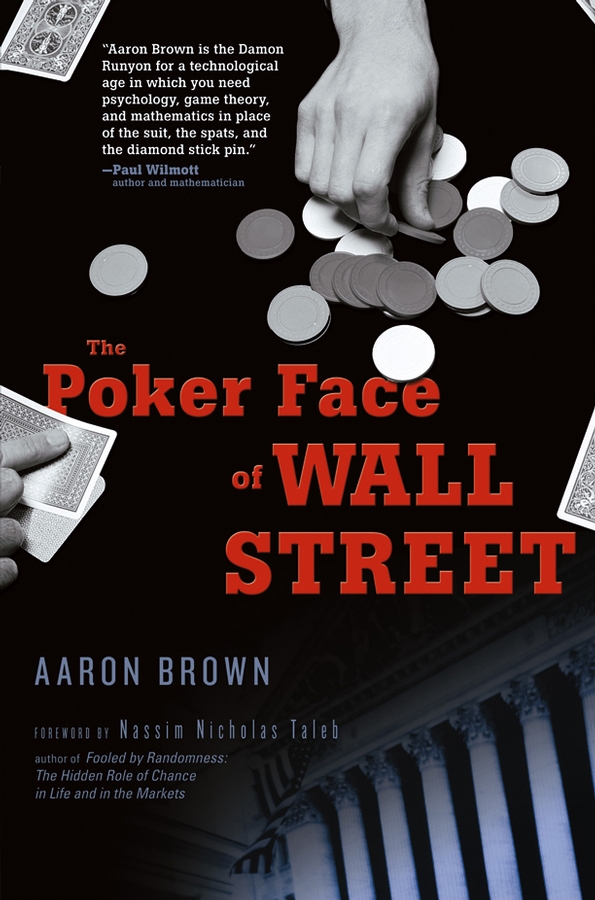
Copyright 2006 by Aaron Brown. All rights reserved
Published by John Wiley & Sons, Inc., Hoboken, New Jersey
Published simultaneously in Canada
No part of this publication may be reproduced, stored in a retrieval system, or transmitted in any form or by any means, electronic, mechanical, photocopying, recording, scanning, or otherwise, except as permitted under Section 107 or 108 of the 1976 United States Copyright Act, without either the prior written permission of the Publisher, or authorization through payment of the appropriate per-copy fee to the Copyright Clearance Center, Inc., 222 Rosewood Drive, Danvers, MA 01923, (978) 750-8400, fax (978) 750-4470, or on the web at www.copyright.com . Requests to the Publisher for permission should be addressed to the Permissions Department, John Wiley & Sons, Inc., 111 River Street, Hoboken, NJ 07030, (201) 748-6011, fax (201) 748-6008, or online at http://www.wiley.com/go/permissions .
Limit of Liability/Disclaimer of Warranty: While the publisher and author have used their best efforts in preparing this book, they make no representations or warranties with respect to the accuracy or completeness of the contents of this book and specifically disclaim any implied warranties of merchantability or fitness for a particular purpose. No warranty may be created or extended by sales representatives or written sales materials. The advice and strategies contained herein may not be suitable for your situation. You should consult with a professional where appropriate. Neither the publisher nor author shall be liable for any loss of profit or any other commercial damages, including but not limited to special, incidental, consequential, or other damages.
For general information on our other products and services or for technical support, please contact our Customer Care Department within the United States at (800) 762-2974, outside the United States at (317) 572-3993 or fax (317) 572-4002.
Wiley also publishes its books in a variety of electronic formats. Some content that appears in print may not be available in electronic books. For more information about Wiley products, visit our web site at www.wiley.com .
Library of Congress Cataloging-in-Publication Data
Brown, Aaron, 1956
The poker face of Wall Street / Aaron Brown.
p. cm.
Includes bibliographical references.
ISBN-13: 978-0-471-77057-2 (cloth)
ISBN-10: 0-471-77057-4 (cloth)
1. Stocks. 2. Finance. 3. Risk. 4. Poker. I. Title.
HG4661.B766 2006
332.6322dc22
2005031902
Contents
Foreword
Nassim Nicholas Taleb
I
One would tend to think that gambling is a sterile activity that is meant to occupy those who have not much else to do and others when they have not much else to do. You would also think that there is a distinction between economic risk taking and gambling, one of them invested with respectability, the other treated as a vice and a product of a parasitic activity.
This book shows that the distinction between what is called purely gambling and productive economic activity is one of those socially constructed ones that remain sticky in our minds. While many may disagree with the point (our economics culture is vitiated by these mental boundaries between activities), it remains that gambling injects currency into economic life in the form of the expectation of future cash transfers and that, and not just narrowly defined productive activities, may make the world advance. We may not accept it because economics is a narrative discipline and this appears to be the wrong narrative. It is not that gambling imitates economic life, but that economic life is largely modeled after gambling. That was the idea of the original thinker John Law, made infamous with his bankruptcy; Aaron Brown, another original thinker, revives it and takes it further.
II
Until the day when I opened the manuscript for this book, I was not interested in gambling, any form of gambling. I had taken the aggressive view that, contrary to what we were taught in all these probability volumes, and in the misguided books on the history of probability and risk, gambling could not offer us lessons about real randomness, nor that it could be a laboratory where you could get actual training for the messy, aPlatonic real life. Just as we tend to underestimate the role of chance in life in general, we tend to overestimate it in these games, by the mechanism of the availability heuristic that makes things the more salient when they easily come to mind.
Indeed, I found it infuriating to listen to people who, upon being informed that I specialize in problems of Chance, immediately jump to references to dice. Two illustrators for a paperback edition of one of my books spontaneously and independently added dice on the cover (the cover illustrator) and below every chapter (by the typesetter), putting me in a state of rage. The editor warned them to avoid the ludic fallacy as if it were a well-known intellectual violationamusingly, they both reacted with ah, sorry, we didnt know. What I call ludic fallacy (after the Latin ludus, play) is the misuse of games as the wrong epistemological ground.
How does randomness end up disappearing in these games? Just consider that you know the probability, and that the payoff does not change throughout. The casino never surprises you by announcing that it will be paying you 100 times more, or a tenth of your take. Furthermore, the dice average out so quickly that I can say with certainty that the casino will beat me in the very near long run at, say, roulette, as the noise will cancel out, though not the skills (here, the casinos advantage). The more you extend the period (or reduce the size of the bets), the more randomness, by virtue of averaging, drops out of these gambling constructs.
The ludic fallacy is present in the following chance setups: random walk, dice throwing, coin tosses, the infamous digital heads or tails expressed into 0 or 1, the Brownian motion corresponding to the movement of pollen particles in water, and similar examples. These generate a quality of randomness that cannot be even qualified as randomness protorandomness, or Mandelbrots mild randomness is a more appropriate designation. At the core, all these theories ignore a layer of uncertainty. Worse, they do not know it!
The revelation was that poker differs greatly from the random walkhence, one could learn from it; furthermore, it may be the sole venue for us to learn about randomness. How? Simply, it has other hidden higher layers of uncertaintymany of them. It has suckers, people who invite you to take advantage of them. It also has people for whom you are the sucker (of course, without your being aware of it). You are not flipping a coin and moving left or right. You are not betting against a large machine like a roulette wheel. You are not engaging in a blind draw. You are playing against other humans. You cannot easily control their maximum bet. Your betting policy matters far more than the probability of getting a given card. You can bluff your way, confuse other players, win in spite of a bad hand, or lose in spite of an unlikely good one. Not least, bets can escalate.
In short, there is autistic probability and social probability, one that is made complicated (and interesting) thanks to the messes and convolutions of human relations. Poker and this book bring us to the latter.
So poker resembles real life, owing to uncertainty about the cards, uncertainty about others betting policy, and uncertainty about the perception by others of your own betting policy. But it is even more similar to real life, as we saw, in quite unsuspected ways.





